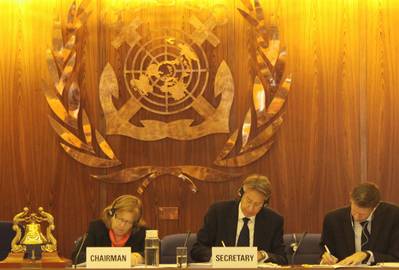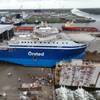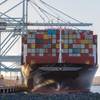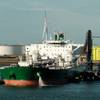Marine Geo-engineering to be Regulated
Marine geo-engineering, including ocean fertilization, will be regulated under amendments to the 1996 Protocol to the international treaty which regulates the dumping of wastes and other matter at sea.
The amendments, adopted recently by Parties to the 1996 Protocol to the Convention on the Prevention of Marine Pollution by Dumping of Wastes and Other Matter, 1972, add a new article 6bis which states that “Contracting Parties shall not allow the placement of matter into the sea from vessels, aircraft, platforms or other man-made structures at sea for marine geoengineering activities listed in Annex 4, unless the listing provides that the activity or the sub-category of an activity may be authorized under a permit”.
Marine geo-engineering is defined as “a deliberate intervention in the marine environment to manipulate natural processes, including to counteract anthropogenic climate change and/or its impacts, and that has the potential to result in deleterious effects, especially where those effects may be widespread, long-lasting or severe”.
A new Annex 4 on “Marine geo-engineering” lists “Ocean fertilization”, defined as “any activity undertaken by humans with the principal intention of stimulating primary productivity in the oceans. Ocean fertilization does not include conventional aquaculture, or mariculture, or the creation of artificial reefs.”
The Annex provides that all ocean fertilization activities other than those referred to above shall not be permitted.
An ocean fertilization activity may only be considered for a permit if it is assessed as constituting legitimate scientific research taking into account any specific placement assessment framework.
A new annex V adds the Assessment Framework for matter that may be considered for placement under Annex 4. The Assessment framework provides that Contracting Parties should consider any advice on proposals for activities listed from independent international experts or an independent international advisory group of experts.
The amendments will enter into force 60 days after two thirds of the Contracting Parties have deposited an instrument of acceptance of the amendment with IMO. (The London Protocol currently has 43 Parties.)
Mr. Stefan Micallef, Director, Marine Environment Division, International Maritime Organization (IMO) commended the adoption of the amendment to regulate the placement of matter for ocean fertilization and other marine geoengineering activities.
“This is a true testament to the fact that the London Protocol continues to be among the most advanced international regulatory instruments addressing human activities in the marine environment and there is no doubt that this much-awaited amendment will be appreciated by other international bodies. The amendment also reflects the scientific-based approach of the London Convention and its 1996 Protocol,” Mr. Micallef said.














